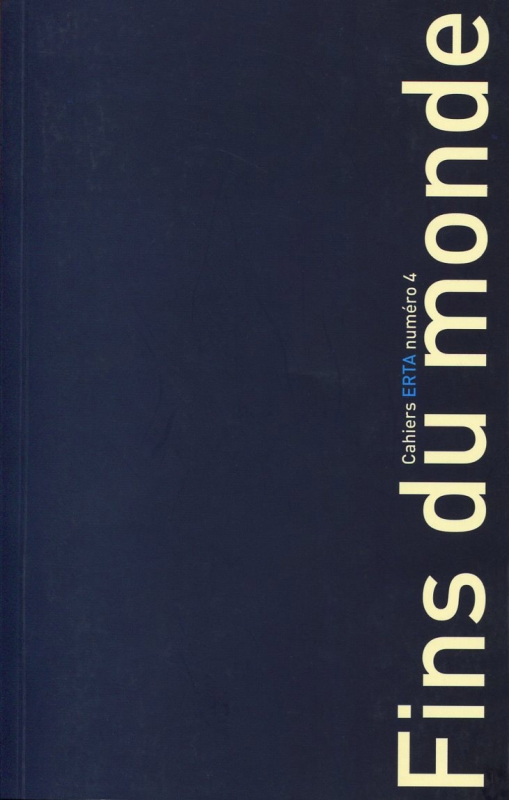An apocalyptic narrative and a dramatic art of the end
Keywords:
literature, Apocalypse, end, Holocaust, absurdAbstract
We notice an impact, an influence of the French History on the literature. For example, we find the theme of the death in novels due to the modern wars: the World War I and the World War II. Indeed, the narrative's creation respects the transformation of the society. We can ask the question whether the literature doesn’t want to put into the narrative's form its own death. To illustrate our argumentation, we chose testimonies of Holocaust and absurd theater plays. This corpus is representati ve of the depression and the pessimism of France afer the war. In reality, an apocalyptic narrative, a dramatic art of the end, is the mirror of a society, and a constantly evolving literature, which was born, dies and will be reborn.
Downloads
References
Baudelaire C., « La Modernité », [dans :] Idem, Le Peintre de la vie moderne, Œuvres complètes, texte établi et annoté par Y-G. Le Dantec, Paris, Gallimard, coll. Bibliothèque de la Pléiade, 1951.
Beckett S., Fin de partie, Paris, Minuit, 1978.
Cyrulnik B.,« Les muets parlent aux sourds »,[dans :], LeNouvel observateur, La mémoire de la Shoah,n° hors série, décembre 2003-janvier 2004.
Delbo C.,Aucun de nous ne reviendra, Paris, Minuit, 1970.
Gervais B., « La mort du roman : d’un mélodrame et de ses avatars », Études littéraires, vol. 31, n° 2, 1999, http://id.erudit.org/iderudit/501234ar?.
Guéno J.-P., Paroles de Poilus, Paris, Editions 84, 2003.
IngraoC.,« Cultures et barbaries : les intellectuels de la SS de la Première à la Seconde guerre mondiale », [dans :] Histoire de la Shoah et Prévention des crimes contre l’Humanité, Mémorial de la Shoah, Atelier Européen organisé par le Conseil de l’Europe, 11-14 février 2013, texte non publié.
Ionesco E., La cantatrice chauve, Paris, Gallimard, 2001.
Jurgenson L., L’expérience concentrationnaire est-elle indicible ?, Monaco, Éditions du Rocher, 2003.
Jurgenson L., « L’indicible : outil d’analyse ou objet esthétique ? »,[dans :] Protée, vol. 37, n° 2, 2009, http://id.erudit.org/iderudit/038451ar.
Mesnard P., Témoignage en résistance, Paris, Stock, 2007.
Pruner M., Les théâtres de l’absurde, Paris, Armand Colin, 2005.
Robin R., « Pour une socio-poétique de l’imaginaire social », [dans :] Discours social/Social Discourse, Montréal, CIADEST, vol. V, n° 1-2, 1993.
Rykner A., « Les spasmes du subjectile», [dans :] M.-T. Mathet (dir.), Brutalité et représentation, Paris, L’Harmattan, 2006.
Sartre J.-P., « Mythe et réalité du théâtre », un théâtre de situations, Paris, Gallimard, 1992.
Semprun J., Wiesel E., Se taire est impossible, Paris, Editions Mille et une nuits, 2009.
Tchekhov A., La cerisaie, Paris, L’Arche Editeur, 1960.
Trevisan C., Les fables du deuil, Paris, PUF, 2001.
Viart D., Le roman français au XXe siècle, Paris, Hachette, 1999.
Wiesel E., La nuit, Paris, Minuit, 2007.

 Academic Scientific Journals
Academic Scientific Journals





